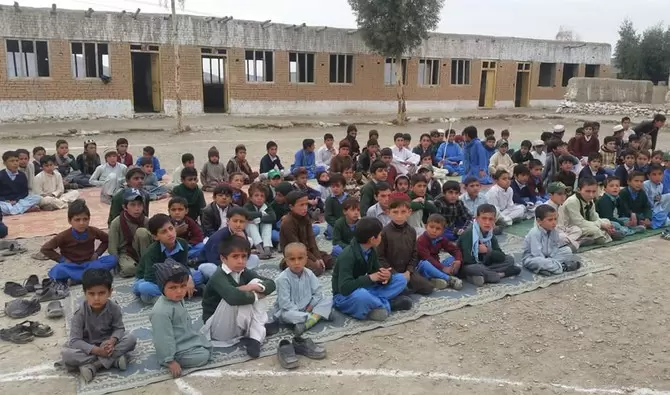
516 government schools in Khyber Pakhtunkhwa are currently without roofs, leaving thousands of students to study under the open sky. According to recent data, 172 schools in the merged districts and 344 schools in the settled districts lack proper roofing. These schools encompass primary, middle, and high schools.
In Lower Kohistan alone, 76 schools are without roofs, while Kolai Palas has 50 boys' schools in the same condition. Battagram has 34 schools without roofs, Dera Ismail Khan has 31, Dir Upper has 22, Mansehra has 17, Shangla has 4, and even the provincial capital, Peshawar, has 2 schools lacking roofs.
Additionally, 489 schools in the settled districts are established in rented buildings, which include primary, middle, and high schools. Students in these schools face significant challenges due to inadequate facilities.
In the merged districts, 138 male and 34 female schools lack roofs. This includes 13 schools in North Waziristan, 26 in Khyber district, 23 in Orakzai, and 8 in Mohmand district.
Parents, including Zain-ul-Abedeen, Sher Ali, Zeeshan Ahmed, and Kamran Ali, have expressed their concerns, urging the provincial government to provide roofs for these schools immediately. They emphasized the extreme weather conditions in Khyber Pakhtunkhwa, with scorching heat in summer and severe cold in winter, along with frequent storms, rains, and strong winds, making it difficult for children to study.
Also Read: Rising Heat and Changing Seasons: The Urgent Need for Climate Action
When contacted, education expert and former dean of Peshawar University, Professor Dr. Yaseen Iqbal, stated that the education sector has never been a priority for the government. He noted that if it had been, the schools in Khyber Pakhtunkhwa would not be in their current state. According to Professor Iqbal, society also shares the blame: "Why are the parents of children studying in roofless schools silent? In areas where civil society organizations and youth groups are active, some issues are highlighted, but many areas remain silent, leaving schools in disrepair."
Samiullah Khalil, president of the Schools Officers Association of Khyber Pakhtunkhwa, highlighted that teachers in these schools often have to arrange tents or make children sit under trees to provide some form of shelter. He stressed that it is the government's responsibility to provide basic facilities like four walls, roofs, water, electricity, and furniture.
Khalil further emphasized that children are central to the education system. If the education department and ministry depend on the child, then all basic facilities must be provided to ensure a conducive learning environment. Attempts to contact government officials and the minister for their position on this issue were unsuccessful, as no response was received.
This dire situation underscores the urgent need for the government to take immediate action to improve the conditions of schools in Khyber Pakhtunkhwa and ensure that every child has access to a safe and adequate learning environment.